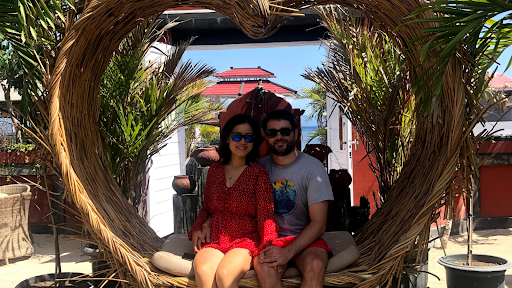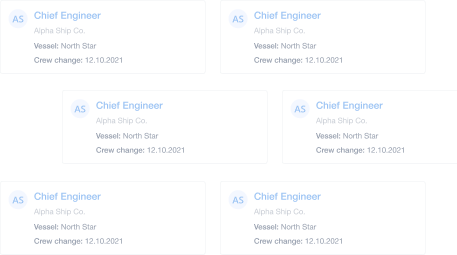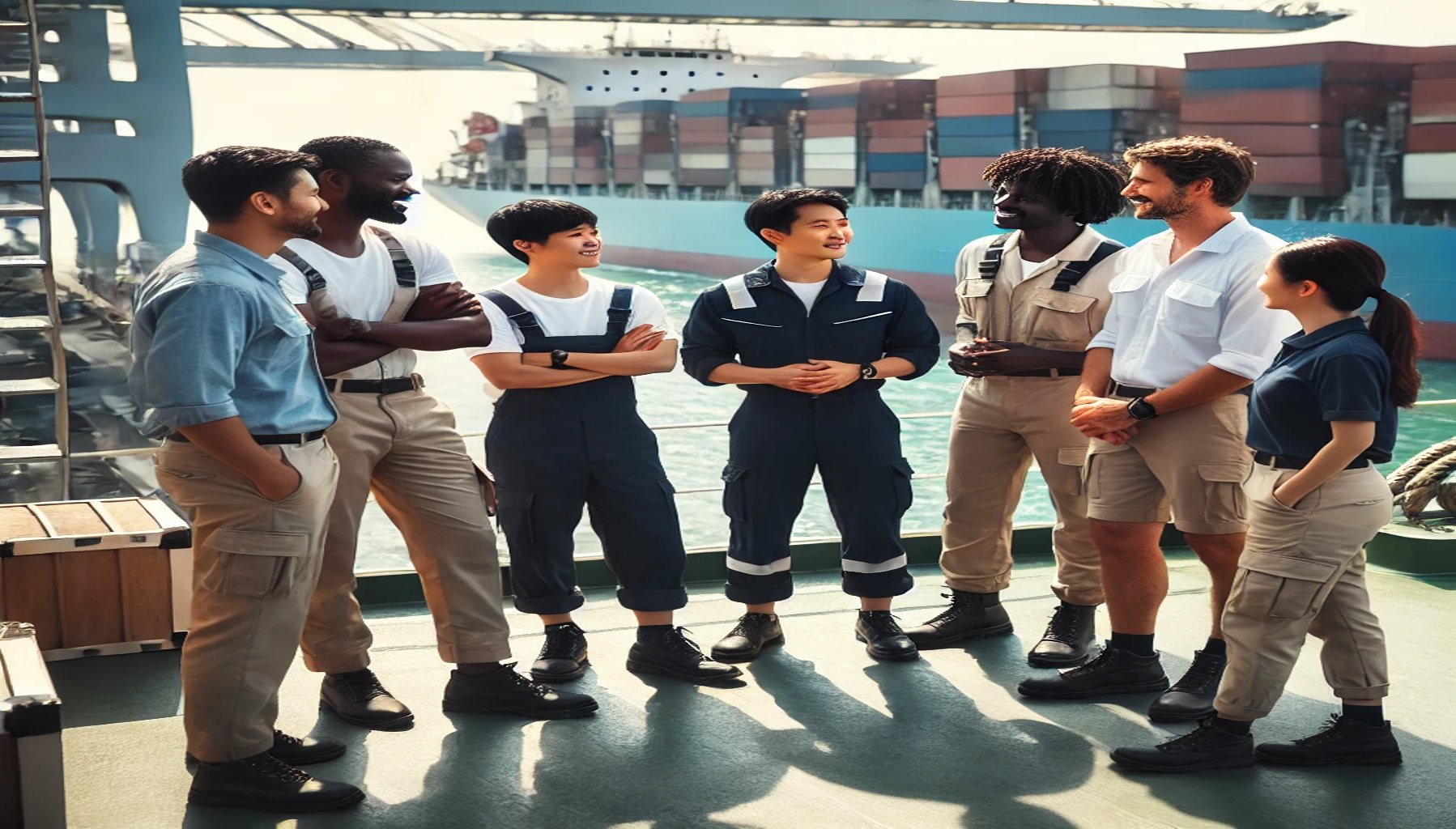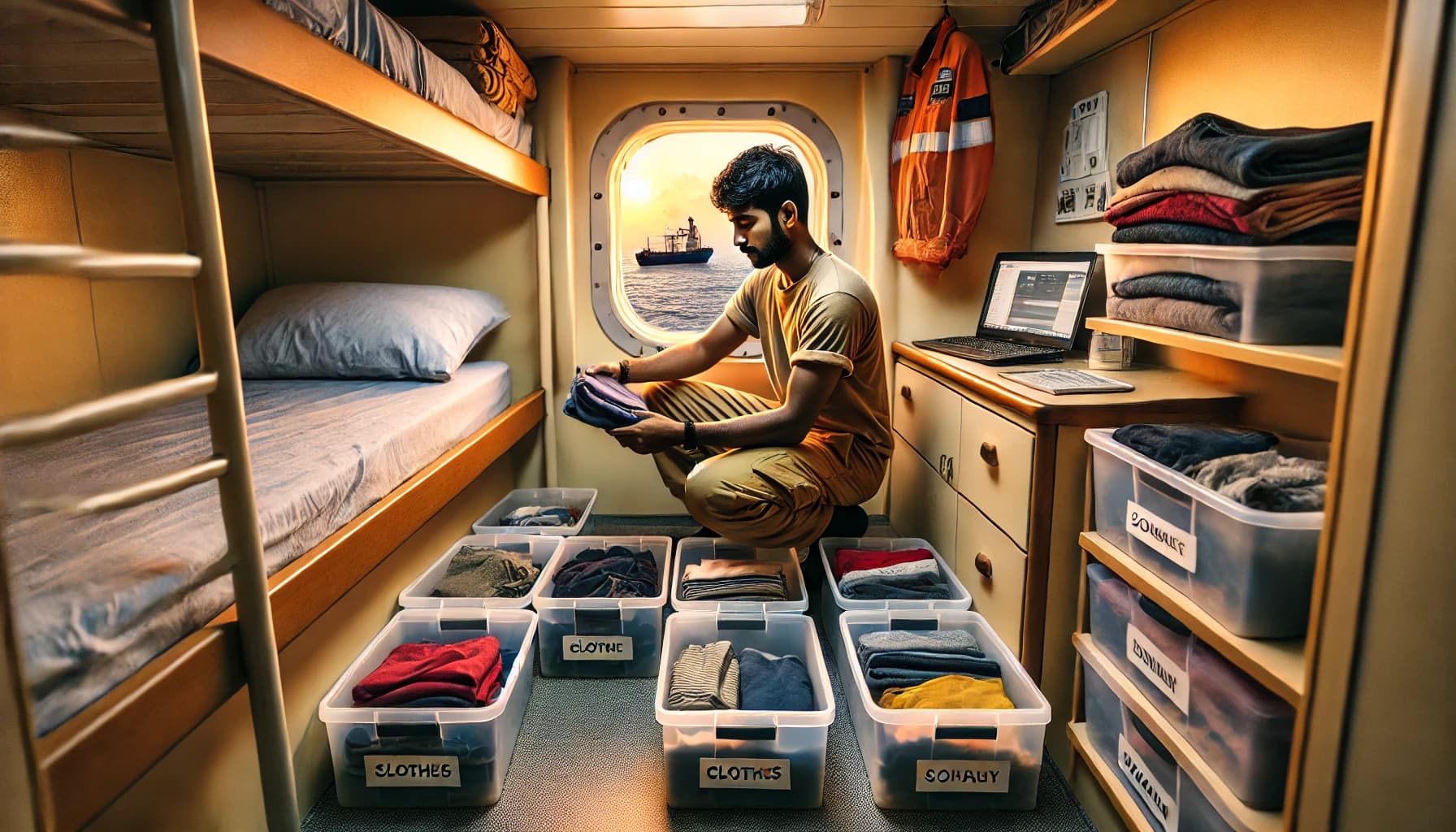Keeping the Knot Taut: Maintaining Healthy Relationships as a Sailor
Aug 24, 2023 · 11 mins read ·
Life at Sea
Maintaining a healthy relationship while sailing as a merchant mariner is difficult. We are more than a century past the days when the Nantucket whaling wives would say farewell to their husbands for 2 to 3 years without even batting an eye. Nowadays with the ever-connected world, the thought of being disconnected for even a few hours seems alien.
So what is young love to do while disconnected in an ever-connected world? My wife and I met in Saipan while I was sailing, and we spent the first 3 years of our relationship in a long-distance relationship. I have personal experience managing a healthy relationship while at sea. I also reached out on social media to get input from other sailors and partners for their advice.
How to maintain a healthy relationship as a sailor
Below is a list of the top recommendations from sailors and their spouses who have navigated the complexity of maintaining a long-term relationship at sea.
Journaling
My wife would message me and ask how my day is, and I would say, “same as always, just another day at work.” Over time she grew weary of this answer. What I realized is that sailing was a complete mystery to her. What seemed like mundane trivial matters were exciting to her. To hear about her husband's routine even as someone as lowly as the steward was entertaining, and it brought us closer.
Every night before I went to sleep, I would open up my laptop and start from the beginning and tell her all about my day. It brought us closer, and it demystified the job to her in a way that she realized I was there out of duty and responsibility and that I would much rather be at home with her. There's only so many times that I can describe making the scrambled eggs, and baking the morning pastries that she realizes that my career isn’t a party that I run away to to get out of familial responsibilities.
Other sailors that gave me feedback on this subject also commented on writing to their partners in letter form as a way to share with them the mundane and the adventures. They say it brought them closer, and I can attest that it works. Take the time to tell the one you love about your day in long-form journaling, and they will appreciate and love you for it.
Communication
When we pulled into port and all the guys were getting dressed up in their nicest clothes to hit the town, I would often opt out of the first night. After all, we finally have cell reception. I want to talk to my best friend. I enjoy the company of my shipmates, but I love my wife. I would much rather talk to her. So when the option to talk is available, make the most of it.
Nowadays the internet is common on most ships and even fast enough internet to voice call or even video call. This is a luxury many sailors for centuries did not have. We live in a golden age of connection, and it's important that we make our loved ones a priority.
Watch movies
How do you watch a movie with someone you aren’t in the same room with? Well, it's easy. You both press start on the movie at the same time and then text about it. It's not as nice as holding your partner during the movie, of course, but it's a really good substitute. My wife and I watched plenty of movies this way, and we messaged back and forth during the movie talking about the plot and characters.
Without the “chill” in “Netflix and Chill,” you can really absorb the content of the movie and enjoy your partner's input on it as well. We really enjoyed watching movies together while I am at sea and fondly look back on all of them regularly.
Play games
My wife and I play PUBG mobile together. When I have cell reception in port, we play PUBG for hours. There are lots of multiplayer games of differing levels of complexity. We also played words with friends, which does not require much bandwidth and usually can be played on the ship's internet.
Any game that allows you and your partner to work together or compete can engage you and make you feel a little less disconnected from the distance. Take advantage of that as much as you can because the distance is difficult.
Plan and discuss future goals
Life doesn’t just pause while we are at sea. Every hitch ends, and It is important to plan with your partner for when you are reunited. My wife and I planned our trip to Bali while I was somewhere in the North Atlantic. It was cold and dreary, and I was dreaming of a beautiful island beach and my wife.
A few months later we were sitting in Sanur in beach chairs watching the sunset on the beach. Planning trips, home renovations, special occasions can give you hope and something to look forward to.
Reintegration after time apart
Coming home after a long voyage is a joyous occasion, but it's not without its challenges. Adjusting to new routines, reconnecting with family, and settling back into daily life can be a complex process. My wife and I often found that planning our time together before I returned helped ease this transition.
We'd discuss our expectations, plan activities, and make sure we were on the same page. It made coming home feel like a continuation of our relationship rather than a jarring shift.
Utilize technology for shared activities
In addition to watching movies and playing games, technology offers countless ways to connect. When we were in port I would set up my phone so that she could see my work area and she would watch me cook. She said it was like watching her own private cooking show. This activity made the distance feel smaller and kept our connection strong.
Communication methods over time
One sailor I spoke to reminisced about the days of hand-written letters and calling cards. He and his partner have seen their communication evolve from those early days to daily emails and texts. This historical perspective adds depth to our understanding of how far we've come. It's a reminder to appreciate the golden age of connection we live in and to use it to its fullest to keep our relationships vibrant.
Professional support if needed
While trust, patience, and open communication are the cornerstones of a healthy relationship, there may be times when professional support is needed. A counselor or support group can provide guidance and perspective during challenging times. It's a resource that's there if you need it, and it's worth considering if you find yourselves struggling to navigate the complexities of a long-distance relationship.
Emphasize trust and patience
Trust and Patience are the foundations of any healthy relationship, but the distance and nature of a relationship with a Merchant Mariner make these two components vital. Without trust and patience, you will struggle to accept the distance and time disconnected. My wife and I would talk every day at the same time.
Well, when you are sailing east or west, the ship needs to adjust the clock occasionally. It took a while for my wife to understand why I was available one day at this time to talk but the next day I was either still working or already asleep. Luckily she was patient and trusted that It was something outside of my control.
Celebrate special occasions virtually
This is tough because there is no true substitute for being with the one you love. It is very important though that you make your partner a priority on the big days. As sailors we miss birthdays, anniversaries and funerals. It's truly the toughest part of the job. We still have the ability to order flowers and send gifts and it's vital to make your partner a priority when they too have to be alone on the big days.
Conclusion
Maintaining a healthy relationship while sailing as a merchant mariner is a unique and rewarding challenge. It requires creativity, commitment, and a willingness to adapt. From journaling our daily experiences to embracing technology for shared activities, we've found ways to keep our connection strong.
The insights and recommendations shared here are not just the wisdom of one sailor but the collective experience of many who have navigated these waters. May they guide you in your journey, and may your relationship thrive, no matter the distance.
About the author
My name is Josh Hinton, and I am a Chef, Merchant Mariner, and Writer. I started sailing in 2017 and have cooked professionally my entire adult life. I hold a culinary arts degree from the Culinary Institute of America and have completed all the necessary training at the Seafarers International Union’s Paul Hall Training Center in Piney Point, Maryland.
I run my own blog called Merchantmarinerguide.com where I write about all things related to Merchant Mariners, and I have an ever-growing library of recipes and articles about managing a galley.

Guest Blogger
A varied collection of articles about the maritime industry written for Martide by various guest bloggers from their own unique perspectives. These include posts by a professional chef who works on container ships and other people connected to, or interested in, shipping and life at sea.

is the only site for maritime jobs



